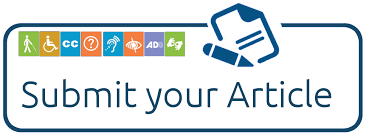Implementasi Akuntansi Digital dalam Pemerintahan: Tantangan dan Peluang (Studi Kasus Kabupaten Grobogan)
DOI:
https://doi.org/10.63200/jebmass.v2i6.153Keywords:
Akuntansi Digital, Pemerintahan, Tantangan, Peluang, Kabupaten GroboganAbstract
The application of digital accounting in government has become an important concern in efforts to increase efficiency, transparency and accountability in regional financial management. This study aims to analyze the implementation of digital accounting in the Grobogan Regency Government, as well as identifying the challenges and opportunities faced in this process. This research uses a qualitative approach with a case study method, where data is collected through in-depth interviews, observation and documentation. The research results show that the implementation of digital accounting in Grobogan Regency has provided significant benefits, including increased speed in financial reporting and ease of data access. However, the challenges faced include limited technological infrastructure, resistance to change, and lack of human resource competence. On the other hand, opportunities arising from this implementation include improving the quality of decision making, saving operational costs, and increasing community participation in budget oversight. In conclusion, despite various challenges, the potential benefits of digital accounting in government are enormous, especially in supporting transparency and efficiency in regional financial management.
Downloads
References
Chen, Y.-C., Shang, R.-A., & Kao, C.-Y. (2009). The effects of information overload on consumers’ subjective state towards buying decision in the internet shopping environment. Electronic Commerce Research and Applications, 8(1), 48–58.
FASB. (2020). Statement of Financial Accounting Concepts No. 8: Conceptual Framework for Financial Reporting. Financial Accounting Standards Board.
Gault, F., Arundel, A., & Kraemer-Mbula, E. (2023). Handbook of innovation indicators and measurement. Edward Elgar Publishing.
Heeks, R. (2005). Implementing and managing eGovernment: an international text.
Kroenke, D. M. (2002). Database processing: Fundamentals, design & implementation. Pearson Educación.
Margetts, H., & Dunleavy, P. (2024). The political economy of digital government. Public Money and Management.
Prasetyo, A. A. (2022). Meminimalisir Asimetri Informasi Melalui Pelaporan (Disclosure) Laporan Keuangan. Transekonomika: Akuntansi, Bisnis Dan Keuangan, 2(1), 45–54. https://doi.org/https://doi.org/10.55047/transekonomika.v2i1.104
Rogers, E. M. (2003). Diffusion of innovations, 5th. FL: Free Press.
Schroeder, R. G., Clark, M. W., & Cathey, J. M. (2022). Financial accounting theory and analysis: text and cases. John Wiley & Sons.
Warren, C. S., Reeve, J. M., & Duchac, J. E. (2014). Study Guide Financial and Managerial Accounting Or Corporate Financial Accounting. South-Western Cengage Learning.
Zeng, S. X., Ma, H. Y., Lin, H., Zeng, R. C., & Tam, V. W. Y. (2015). Social responsibility of major infrastructure projects in China. International Journal of Project Management, 33(3), 537–548.
Downloads
Published
How to Cite
Issue
Section
License
Copyright (c) 2024 Amin Sadiqin*, Buyung Cahya Perdana, Rizki Arvita

This work is licensed under a Creative Commons Attribution 4.0 International License.











